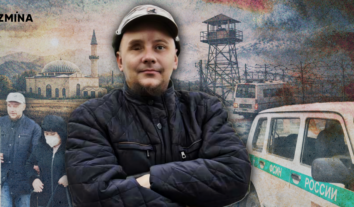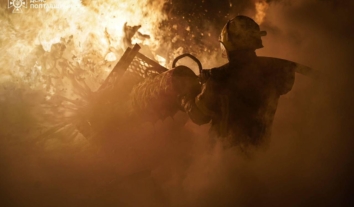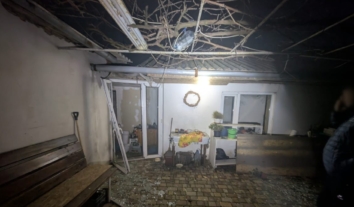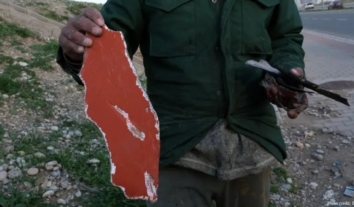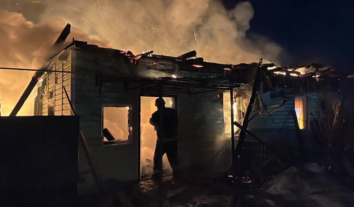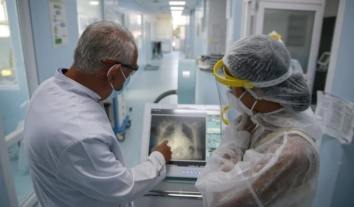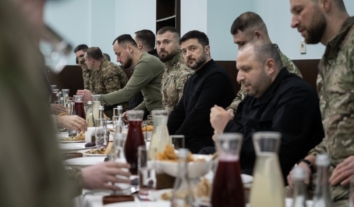Abductions: from sensation to routine. How the practice of enforced disappearances has changed in the occupied Crimea
Enforced disappearances, arbitrary detentions and politically motivated prosecutions in the occupied Crimea have become the routine. This statement was made by human rights defenders at a session of the UN Human Rights Council last week.
Before that, the local human rights initiative Irade noted in its report that the practice of abductions by security forces continues in Crimea.
Read about the specifics and scale of the problem on the occupied peninsula in this article.
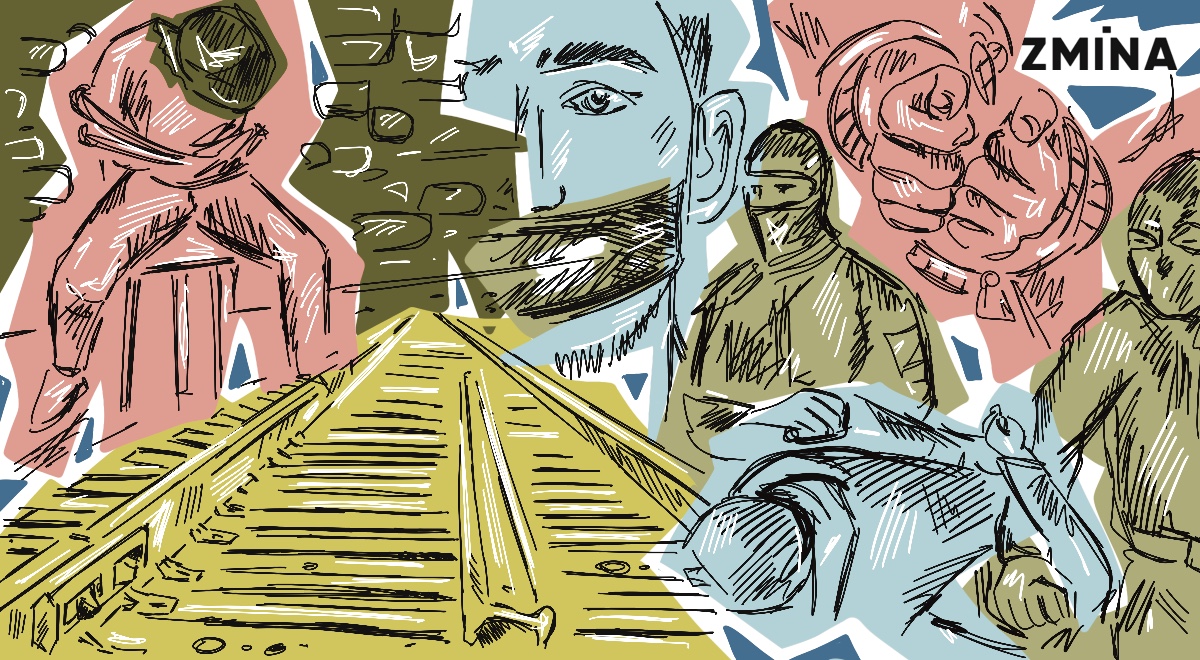
Self-defence units and flying squads
During the almost 11 years of occupation of Crimea, the process of enforced disappearances has undergone at least several transformations. In the first few months after the Russian army invaded the peninsula, abductions were associated with the cleansing of the occupied territory from the most active participants in peaceful resistance. Some were later released from the basements and expelled from Crimea after severe torture. At the same time, nothing is known about the fate of some arbitrarily detained persons, but the body of Reshat Ametov, who was abducted by the Crimean self-defence unit at that time, clearly demonstrates the options for the development of these events. However, one of the peculiarities of that period was that each such fact caused a serious public resonance.
Then the practice of enforced disappearances changed significantly. The main perpetrators were not half-drunk self-defence members at railway stations and squares, or former Berkut officers at checkpoints, but unknown men in camouflage and balaclavas. Their actions, according to eyewitnesses, were always purposeful and coordinated, and the abductees were usually taken away in blue minibuses with tinted windows. The risk group has also changed – they are now mostly abducting Crimean Tatars, who have a potential connection to the conflict in Syria not on the side of Assad. During this period, there were no happy endings – all abductees have not been found yet. That period ended in 2016 with the abduction of Crimean Tatar politician Ervin Ibrahimov, who had nothing to do with the Syrian events, and then the abductions stopped for a long time.
They stopped hiding their involvement
The new stage is characterised by the open involvement of FSS officers in the disappearances. An unsuccessful “trial run” took place in 2017, when, after a search, Russian security forces took religious activist Renat Paralamov to an unknown destination. The public resonance forced them to release the Crimean, who had been tortured to unconsciousness, the next morning right at a bus stop in Simferopol. However, the special service carried out “work on mistakes” and, in all likelihood, subsequently received carte blanche for abduction and torture.
For example, in March 2021, journalist Vladyslav Yesypenko was abducted and tortured, in September – the Akhtemov brothers, and in April 2022 – civilian journalist and human rights defender Iryna Danylovych. The peculiarity of this stage of abductions is the predictable outcome: after several days of uncertainty, the disappeared are found in a pre-trial detention centre in a serious moral and physical condition, and repentant confessions of committing certain crimes are broadcast on propaganda resources. In the courts, the gap in the dates between the disappearance of the victim and the bringing of charges is cynically explained by FSS officers as “he came and stayed in the building voluntarily for several days”.
Victims of filtration
With the start of the full-scale invasion, refugees from the newly occupied regions began to arrive in Crimea, and Russian operatives “kindly” met them at border crossings. All men and most women were required to undergo a set of procedures called “filtration”. They checked the contents of their phones, tattoos on their bodies, biographies and connections with the Ukrainian military or special services. Those who for some reason aroused suspicion were not heard from for a long time.
The story of Kherson business analyst Ivan Kozlov, who disappeared without a trace after being detained at the Armiansk border crossing point for six months, is one of numerous examples of a new stage in the “evolution” of enforced disappearances in Crimea. Its characteristic feature is that the victim is held incommunicado for a long time in an unknown place without legal assistance and contact with relatives, and then at some point is “found” and accused of a trumped-up criminal offence.
Revenge for the rails
On the “sacred” day for the Russians, February 23, 2023, a successful sabotage was carried out against the occupiers on the railway in the Bakhchysarai district. Since then, the practice of enforced disappearances has become almost a routine due to its massive use against Crimeans. The main feature of that period was the transfer of detainees to an unknown destination, sometimes with a bag over their heads. Often to a basement, with threats of torture and always with interrogation on a “lie detector”. Sometimes people were not abducted from their homes, but simply on the road: the car was stopped by a traffic police inspector, and then the security forces took them to the same basement for similar interrogation.
A distinctive feature of that period was that the security forces conducted all interrogations of the abductees solely to establish their involvement in railway sabotage. Of course, the right to defence for those who were interrogated was out of the question. According to lawyer Edem Semedliaiev, at the entrance to the FSS department, where he arrived to defend the abducted Rolan Osmanov, he was told that his client did not need legal assistance, as “no procedural actions were being carried out with him”. Another peculiarity was that most of the abductees were not deprived of their liberty after the polygraph. However, in some cases, arrests were made under false claims, in particular to hide traces of physical violence against the abductees.
Now they don’t let go
In November 2023, the practice of enforced disappearances in Crimea again underwent negative changes. Now, just like in the spring of 2023, FSS officers detain Crimeans in their homes and take them to an unknown destination, but then do not release them after interrogation with a polygraph. They also do not charge them with trumped-up cases a few days after the torture. The detainees simply “disappear”, and neither their relatives nor their lawyers can get information from the security forces about their whereabouts and legal status for months.
As noted in the Irade report, the whereabouts of construction workers Farkhad Soliiev and Server Aliiev, who were abducted in Sevastopol, have remained unknown for almost a year. No specific information is given to the relatives of Ismail Shemshedinov, who was taken to an unknown destination by the FSS in January 2024, or to the relatives of Choras Akimov, who was abducted after a search in March this year. There is almost no information about the three women who disappeared in the village of Lenine in the spring of this year, and at least two men who disappeared in August this year in Feodosia.
Serious challenge
It is obvious that enforced disappearances have become a routine tool of the Russian security forces in Crimea. This is especially true given the fact that human rights on the occupied peninsula have long been out of the focus of the international community. A strong informational and diplomatic response to each such case could stop the steady increase in the number of abductions, which are becoming a routine procedure for Russian security forces. However, in today’s reality, we can’t count on this.
Therefore, human rights defenders and experts are currently facing a serious challenge to develop innovative strategies that will be able to influence the situation in the context of a significant deterioration in the human rights situation in different regions of the world and a lack of attention to the situation in the occupied Crimea.


